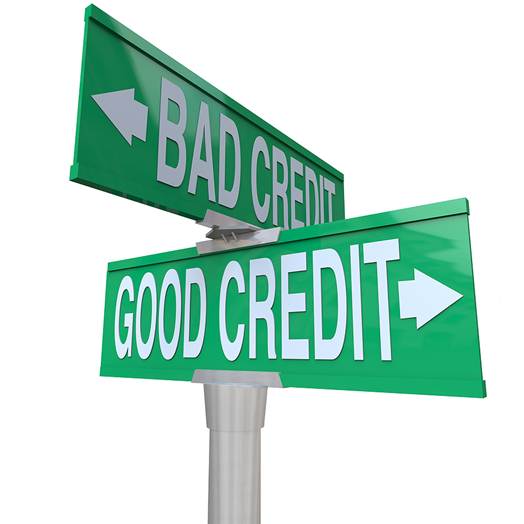She’s a senior at work with a decent salary but her pay as
you go cellphone gives her away. Sarah Koopman talks to one of the eight
million South Africans who has learnt about debt the hard way
“It all began with a
Woolworth’s card. I pled and around two weeks later my store card was sent to
me. I was given a credit limit of R4000 and I did not use it wisely. I used it
to buy chocolates and sweets when going to see a movie and expensive birthday
gifts for friends, paying more than I ever would have spent if I was using
cash. The problem was that I didn’t think of it as my money.” At 18, Alice
Rothman had just ventured into the world of credit. She’d been waitressing at
the same restaurant for three years, had a stable income and a recommendation
from her boss enough to persuade stores to offer her credit she had no idea how
to manage. That R4000 was all it took to set a dangerous cycle in motion.
“A few months later I
received letters from Edgars and Truworths that offered me accounts. I applied
and received the store cards in the mail.” Her purse now filled with plastic,
Alice had the spending power of an adult and the devil may care attitude of a
teenager. In no time she was swiping her way down a path of debt that lead to a
spot on a blacklist.
Sound familiar?
According to data consolidation firm Experian South Africa, close to half of
the 17.5 million South Africans with credit are in the same boat as Alice.
Eight million have impaired credit records and run the gauntlet of final demands,
court summonses and debt induced stress and depression. In fact, so widespread
is the sense of hopelessness and despair resulting from being trapped in debt
that the South African Depression and Anxiety Group (SADAG) now has a division
dealing specifically with emotional stress brought on by financial stress.
It’s not just a wildly
extravagant lifestyle that leads to debt, though. The trap is set for anyone
living beyond their means, as Alice discovered. “I paid crazy prices for
clothes, getting a new dress every time I had a [arty or something to go to. I
repaid the minimum amounts on my cards every month which, in the beginning, was
a few hundred a month, but as my shopping increased, so did the installments
and I began to fall behind.”
For Alice, living at
home with parents who had warned that her store cards would get her into
trouble meant keeping her debt troubles secret. “I’d get letters of demand in
the mail and I had to run to the letter box every day to make sure my parents
wouldn’t see them.”
The emotional stress
was just as exhausting as trying to figure out a solution to a situation that
seemed out of control.
“Eventually all my
accounts were maxed out and i tried paying them off a little each month. After
a while I began to miss payments, because I had to use my money foe clothing
and food, not having accounts to fall back on any more, it was overwhelming,
knowing I owed all that money. Eventually my accounts were handed over to debt
collectors and I was blacklisted for five years I couldn’t get a credit card, a
cellphone contract, nothing.”
“An impaired credit
record means you have fallen behind in your debt payments by three or more
months or have had a judgment against you,” says Moeshfieka Botha, media and
communications manager at Credit Matters, the largest debt counseling company
in South Africa. Being blacklisted is a legal action taken against you by
credit providers.
Building a credit record
Many people are
ashamed of seeming incapable of managing their money and tend to keep unmanageable
debt a secret. But that only makes it worse. A good place to start, whether
you’re already in trouble or just want to avoid it, is knowing your credit
record.

From the moment you
become credit active, centralized credit bureaus track your activity to create
your credit record. This is a tool credit providers use to gauge whether or not
you are a reliable client to offer credit to. Furthermore, says Johan van der
Merwe, head of credit at Wesbank: “A person’s credit record can sometimes reveal
just as much about her willingness to pay as her ability to pay.”
Your credit record is
the carbon copy of all credit taken out on your name and is constantly updated
by credit bureaus. This covers everything from cellphone contracts to bonds,
car financing or personal loans. Any creditor deciding whether or not to grant
you a loan, allow you to take out a cellphone contract or sign up for a store
account must legally check if you will be willing and able to settle your
debts. All this information is gathered and collated by credit bureaus that
provide the National Credit Regulator (NCR) with information pertaining to the
credit habits of South African consumers.
Keeping your credit
record clear and ensuring you do not fall into arrears with any of your payments
will put you in a better position for future credit negotiations. If credit
providers see you as responsible with servicing your debts, you may be able to
negotiate better interest rates when applying for credit. This means your debt
will cost you less to pay back.
As daunting as taking
on debt can be, it is important. “The lack of a credit record can count against
someone applying for credit almost as much as an impaired credit record does,”
says van der Merwe. Without a credit record, credit providers are unable to
determine whether you are going to repay your debts. However, building up a
good credit record is a slow process and requires taking on only those debts
you can afford and managing your money careful from day one.
What consumers need to
realize is that this careful monitoring is a good thing. The purpose of the
National Credit Act (NCA) is t protect consumers from accumulating mountains of
debt they cannot repay. In terms of the Act, it is as much the credit
provider’s responsibility to ensure customers are able to repay their debt as
it is the consumer’s responsibility to ensure she can afford more credit.
Irresponsible lending is no longer allowed and, thanks to the NCA, credit
providers may be held liable for reckless and high risk lending.
Before the Act was
promulgated, credit providers could grant credit as they wished, regardless of
a customer’s financial situation, as Alice discovered after applying for her
second and third store cards. “I maxed out my Truworths card and what did they
do? Upped my credit limit! It was crazy.”
Keeping it clean
Keeping your credit
record clean and your debt repayments up to date are critical to your financial
independence. Without it, you won’t be able to finance a car or get a bod.
“Most people don’t
realize that they are entitled to one free personal credit report a year from
the credit bureaus,” says van der Merwe. These reports are available from any
of t central credit bureaus and give you access to what prospective creditors
see when considering your application.

If your record does
show that you are in financial trouble, you must ace it and ask for help as
soon as you need it. Sometimes it is possible to solve the problem on your own
by making lifestyle changes when you can. Alice was lucky; when she finally
told her parents she was hopelessly in debt, they helped her pay off her store
accounts before she closed them. But if you can’t manage alone, the NCR has
debt counseling services for people who are over-indebted.
Debt counselor’s act
as intermediaries between debtors (people who own money) and the credit
providers they are in arrears with. Under this court sanctioned debt review
process, the counselors are able to negotiate lower monthly repayments. Once
under debt review, you will no longer be able to take legal action against you.
The conditions for being under debt review are relatively simple: you must have
a source of income, admit you have a problem that you need help with and be prepared
to make some serious changes to your lifestyle. Only once you are fully
committed to the debt review process will your counselor be able to implement a
plan to see you out of your debt crisis.
If the thought of this
is too unpleasant, start as soon as possible by getting to know your financial
status and ensuring you can afford your current lifestyle. To do this, know
whom you own money to, save as much as possible, understand things like
interest rates and, most importantly, draw up a budget and stick to it. Alice
say her experience with debt has been life changing: “I have been put off credit
for life, but as an adult I needed to build up a good credit rating in case I
ever wanted to buy a house or the like. I applied for a credit card recently
and received it two weeks later. Although cellphone companies will still not
give me a contract because of my history, I’m no longer blacklisted. Lesson
learnt… I hope. ”